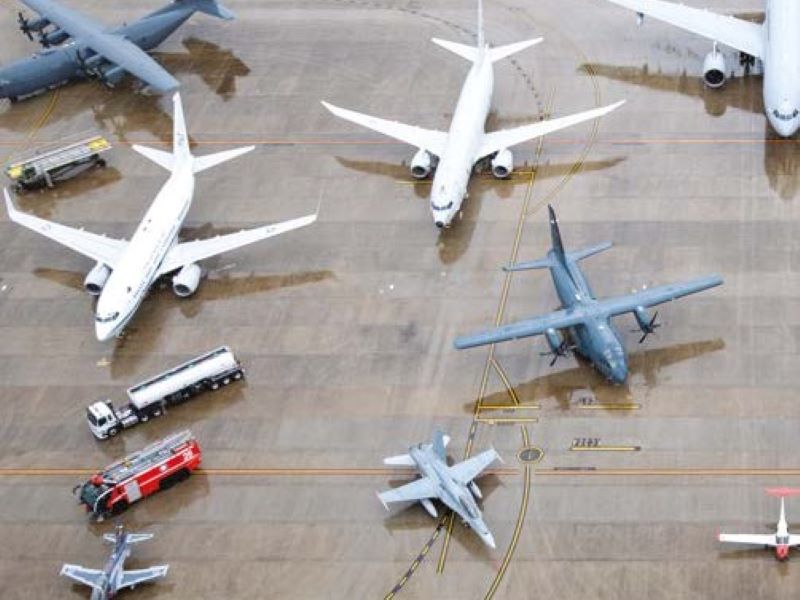The Defence Force has begun making digital twins of its airbases, with global consultants McKinsey being paid $6.4 million over less than eight months to develop a prototype model for a regional Queensland base to be used at other facilities.
The digital twins will be used by senior Royal Australian Air Force (RAAF) officers to monitor airbase operations and staff, including staff qualifications, proficiency and sustainability, and the impact of moving them to different bases in certain operations.
A lucrative contract awarded to McKinsey to develop these digital copies will see the US consultancy paid more than $6.4 million or $36,000 over the short contract period, and sets the firm up to make further recommendations to the Defence department based on the data collected.
Other public details of the contract are incorrect after a reporting error and the Air Force was unable to provide any contract details of previous work with McKinsey, claiming these records had not been maintained.

Digital twins are virtual representations of physical objects and processes, and typically combined with data analytics for greater oversight and improved operations.
Defence flagged the development of digital twins in its last technology strategy in 2020 to improve the oversight and performance of its assets, and has already begun a digital twin project for land vehicles to improve predictive maintenance
A Digital twin is now also being developed for a Queensland RAAF airbase to capture the “the complexity and interdependency” of its operations, according to a response to Labor’s Senate questions for more details on the $6.4 million McKinsey contract.
The digital twin model will be used to identify problems in base capacity, with McKinsey expected to then use the data to make enterprise level recommendations to the Air Force on resource allocation, according to the response provided by Defence Minister Peter Dutton.
“McKinsey will develop a digital twin of RAAF airbases, which will capture the complexity and interdependency of airbase operations at main operating bases, and expeditionary footprints. The modelling will provide the ability to identify bottlenecks in airbase capacity and provide the opportunity for McKinsey to make enterprise-level recommendations to Air Force in relation to improving the way in which limited airbase resources are applied” Mr Dutton said.
A prototype digital twin of the RAAF Amberley airbase southwest of Brisbane is being built to test the accuracy of McKinsey’s approach. It will capture “the level of available resources, including workforce qualifications, proficiency and sustainability and mirrors the dependencies and interdependencies of airbase functions”. The digital twin model will be provided to Headquarters Air Command and Headquarters Combat Support Group.
McKinsey was awarded the contract in late October, with details posted more than a month later and the tender notice incorrectly stating it was not a consultancy contract. This was due to an error in the automated reporting process, Mr Dutton said, but has not yet been corrected.
The eight-and-a-half-month contract is worth more than $6.4 million and McKinsey has assigned eleven full time equivalent staff to it at an average rate of more than $3,000 per day each for 32 weeks.
Mr Dutton said the consultants had been brought in because the Department lacked the skills to develop digital twins in house. He confirmed McKinsey has been engaged by the Air Force previously but declined to provide tender details because the Air Force has not “maintained the details of previous services with the Department”.
The Department of Defence awarded McKinsey public contracts worth more than $50 million last calendar year for various training, program review, analysis and advisory services.
Staff working on the latest digital twin airbase project include senior McKinsey partners, with many from the consultancy’s data and analytics division known as QuantumBlack, as well as several of its senior partners based in Europe and the US.
The global consultancy acquired QuantumBlack in 2015. Its European chief operating officer off the last three years moved to Australia last year as a partner in local operations and is involved in the airbase project.
Do you know more? Contact James Riley via Email.

